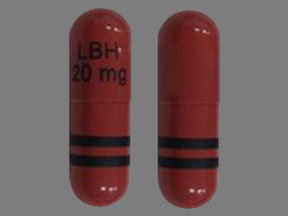Farydak Disease Interactions
There are 5 disease interactions with Farydak (panobinostat).
Panobinostat (applies to Farydak) cardiac toxicity
Major Potential Hazard, Moderate plausibility. Applicable conditions: Arrhythmias, Ischemic Heart Disease, Electrolyte Abnormalities
Severe and fatal cardiac ischemic events, as well as severe arrhythmias, and electrocardiogram (ECG) changes have occurred in patients receiving panobinostat. Panobinostat may prolong cardiac ventricular repolarization (QT interval). Do not initiate treatment with panobinostat in patients with a QTcF >450 msec or clinically significant baseline ST-segment or T-wave abnormalities. If during treatment, the QTcF increases to >=480 msec, interrupt treatment. Arrhythmias may be exacerbated by electrolyte abnormalities. It is recommended to obtain ECG at baseline and periodically during treatment as clinically indicated. Monitor patient hydration status and electrolyte blood levels, including potassium, magnesium and phosphate, at baseline and frequently as clinically indicated during therapy and correct to prevent dehydration and electrolyte disturbances. If QT prolongation does not resolve, permanently discontinue treatment with panobinostat.
References
- (2015) "Product Information. Farydak (panobinostat)." Novartis Pharmaceuticals
Panobinostat (applies to Farydak) hepatic impairment
Moderate Potential Hazard, Moderate plausibility. Applicable conditions: Liver Disease
Hepatic impairment can increase panobinostat exposure. It is recommended to reduce the starting dose of panobinostat in patients with mild or moderate hepatic impairment. Avoid the use of panobinostat in patients with severe hepatic impairment. Liver function should be monitored prior to treatment and regularly during treatment. If abnormal liver function tests are observed dose adjustments might be considered and the patient should be followed until values return to normal or to pretreatment levels.
References
- (2015) "Product Information. Farydak (panobinostat)." Novartis Pharmaceuticals
Panobinostat (applies to Farydak) infections
Moderate Potential Hazard, Moderate plausibility. Applicable conditions: Infection - Bacterial/Fungal/Protozoal/Viral
Localized and systemic infections, including pneumonia, bacterial infections, invasive fungal infections, and viral infections have been reported in patients taking panobinostat. It is recommended to monitor patients for signs and symptoms of infections during treatment; if a diagnosis of infection is made, institute appropriate anti-infective treatment promptly and consider interruption or discontinuation of therapy. Care should be exercised when prescribing this agent to patients at risk.
References
- (2015) "Product Information. Farydak (panobinostat)." Novartis Pharmaceuticals
Panobinostat (applies to Farydak) myelosuppression
Moderate Potential Hazard, Moderate plausibility. Applicable conditions: Anemia, Bone Marrow Depression/Low Blood Counts
Panobinostat causes myelosuppression. Cases of severe thrombocytopenia, neutropenia and anemia have been reported with the use of panobinostat. It is recommended to obtain a baseline CBC and monitor the CBC frequently as clinically indicated. Dose modifications are recommended for myelosuppression.
References
- (2015) "Product Information. Farydak (panobinostat)." Novartis Pharmaceuticals
Panobinostat (applies to Farydak) renal impairment
Moderate Potential Hazard, Moderate plausibility. Applicable conditions: Renal Dysfunction
Mild renal impairment to severe renal impairment did not impact the plasma exposure of panobinostat. The use of panobinostat has not been studied in patients with end stage renal disease or patients on dialysis. Care should be exercised when using panobinostat in these patients as the dialyzability of panobinostat is unknown.
References
- (2015) "Product Information. Farydak (panobinostat)." Novartis Pharmaceuticals
Farydak drug interactions
There are 635 drug interactions with Farydak (panobinostat).
Farydak alcohol/food interactions
There is 1 alcohol/food interaction with Farydak (panobinostat).
More about Farydak (panobinostat)
- Farydak consumer information
- Check interactions
- Compare alternatives
- Drug images
- Side effects
- Dosage information
- During pregnancy
- FDA approval history
- Drug class: histone deacetylase inhibitors
- En español
Related treatment guides
Drug Interaction Classification
| Highly clinically significant. Avoid combinations; the risk of the interaction outweighs the benefit. | |
| Moderately clinically significant. Usually avoid combinations; use it only under special circumstances. | |
| Minimally clinically significant. Minimize risk; assess risk and consider an alternative drug, take steps to circumvent the interaction risk and/or institute a monitoring plan. | |
| No interaction information available. |
Further information
Always consult your healthcare provider to ensure the information displayed on this page applies to your personal circumstances.


